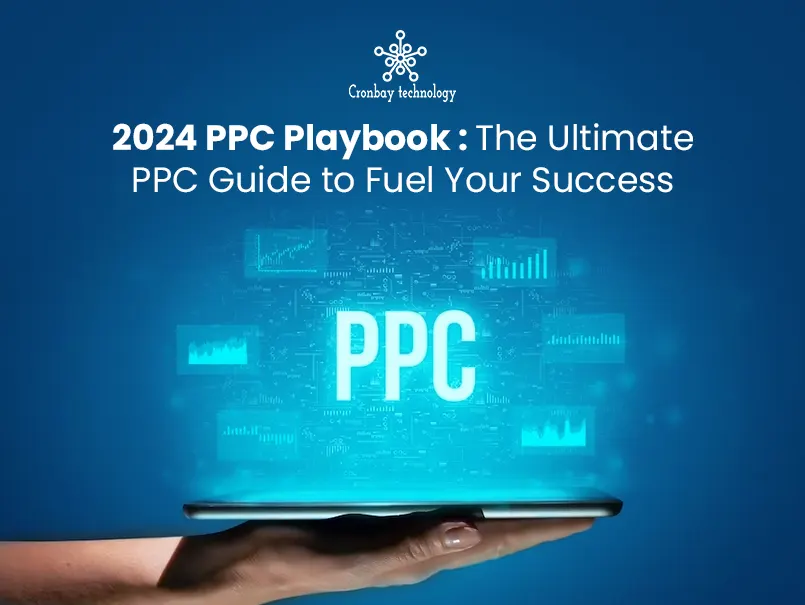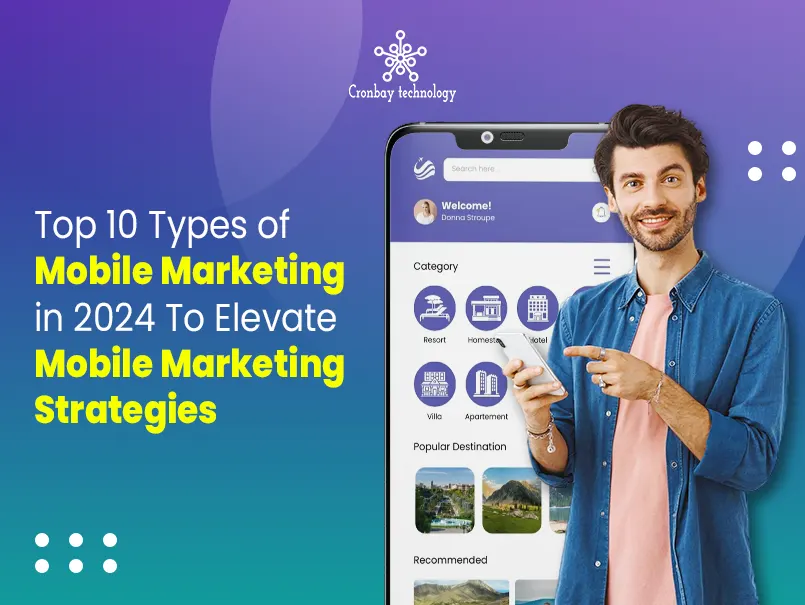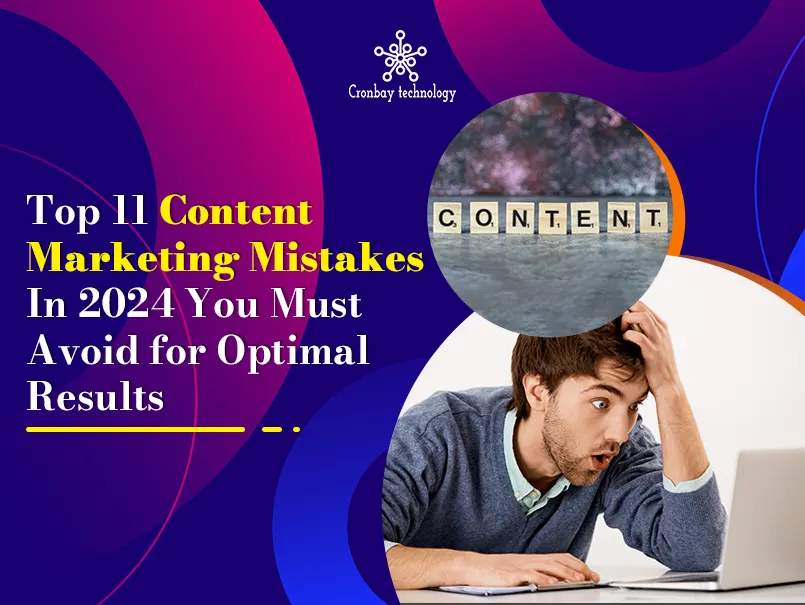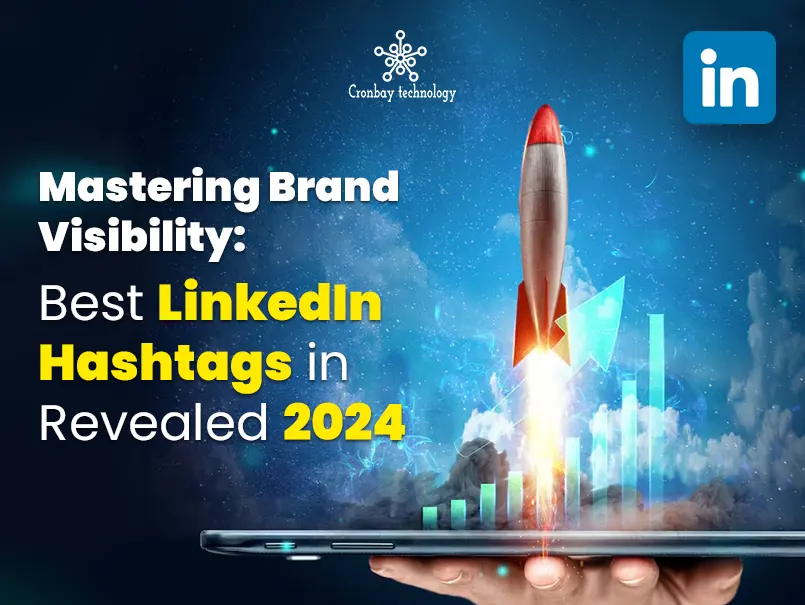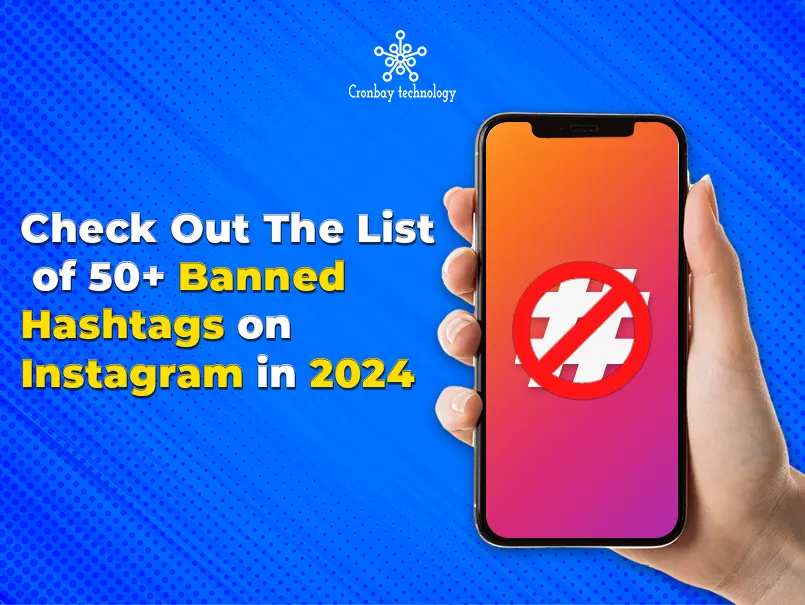Let's have a candid moment, marketers. How confident are you in your
understanding of PPC advertising
in digital marketing on a scale from 1 to 10?
Even though nearly half of the businesses find strategies for
small business online advertising and PPC campaigns to try
online ads, lots of folks still find pay-per-click (PPC) advertising
confusing.
As a marketer, being good at PPC advertising services isn't just
helpful—it's really important. A recent PPC advertising report by
Statista predicted that digital advertising spending worldwide is
projected to reach $836 billion by 2026.
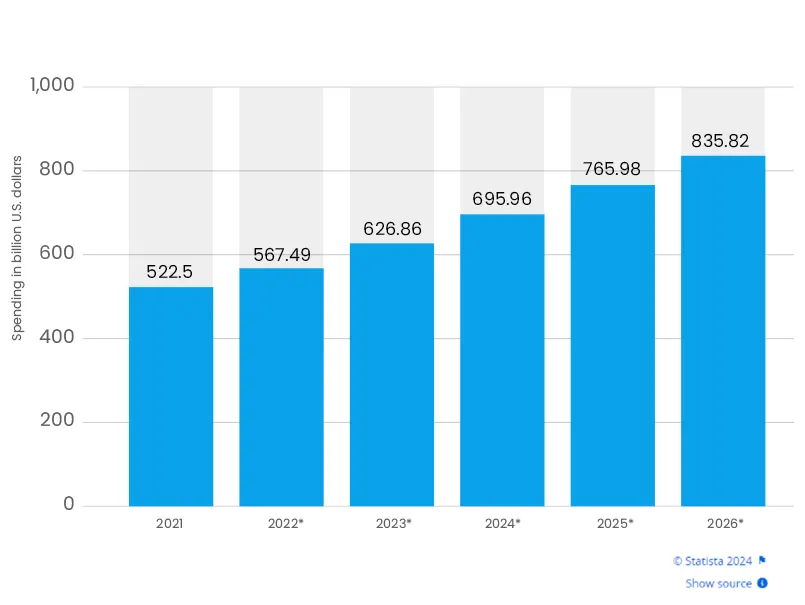
This shows that it's like having a must-have tool in your kit, or at least knowing the basics well. So, without any delay, let us get into it and learn more about PPC advertising strategy.
What is PPC Advertising, or Pay-Per-Click Advertising?
PPC advertising meaning or Pay-Per-Click advertising definition is
very simple. It is an online marketing model where advertisers pay a
fee each time their ad is clicked. This marketing strategy used by
PPC advertising agencies is great for precise budget control and
performance tracking.
Google
Ads, Microsoft Ads, and
Facebook Ads are popular PPC platforms, with Google being
the top choice due to its extensive reach. Search PPC offers high
returns of
$2 for every $1 spent—a 200% ROI—on average as stated by
Wordstream study.
5 Pay-Per-Click Advertising Benefits in Customer Acquisition in Business
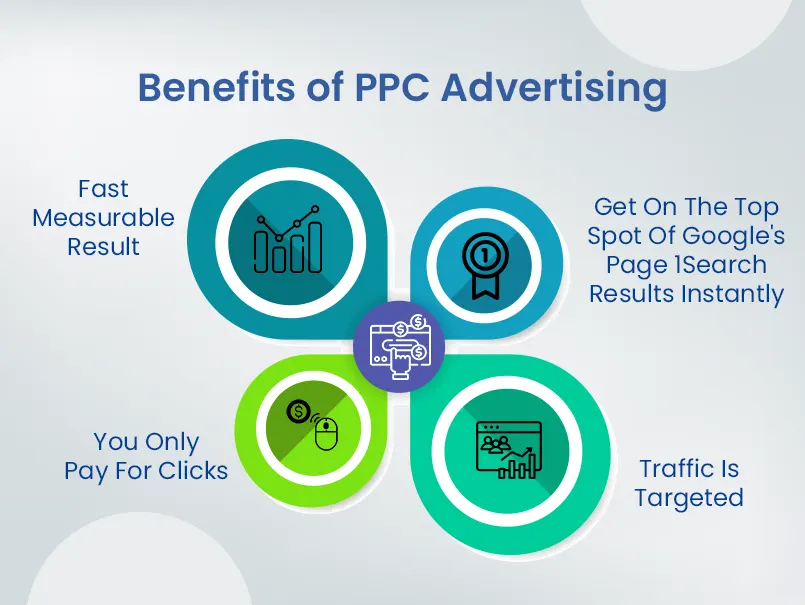
1. Cost-effective Targeting:
PPC advertising agency enables precise targeting of demographics at a low cost, allowing businesses to optimize spending for maximum productivity.
2. Immediate Customer Acquisition:
Unlike organic marketing efforts, PPC advertising companies instantly fill available ad spaces, bringing in customers right away.
3. Quality Lead Generation:
PPC ad networks connect with potential customers actively seeking relevant products or services, resulting in high-quality leads.
4. High ROI:
Other advantages of PPC advertising campaigns are that they offer a good return on investment as they are easily trackable and adjustable, ensuring positive outcomes.
5. SEO Data Enhancement:
Next is that the best PPC advertising companies allow user data to provide valuable insights for SEO strategies, allowing businesses to refine keyword strategies before investing in long-term SEO efforts.
10 Main Elements of a Successful PPC Campaign
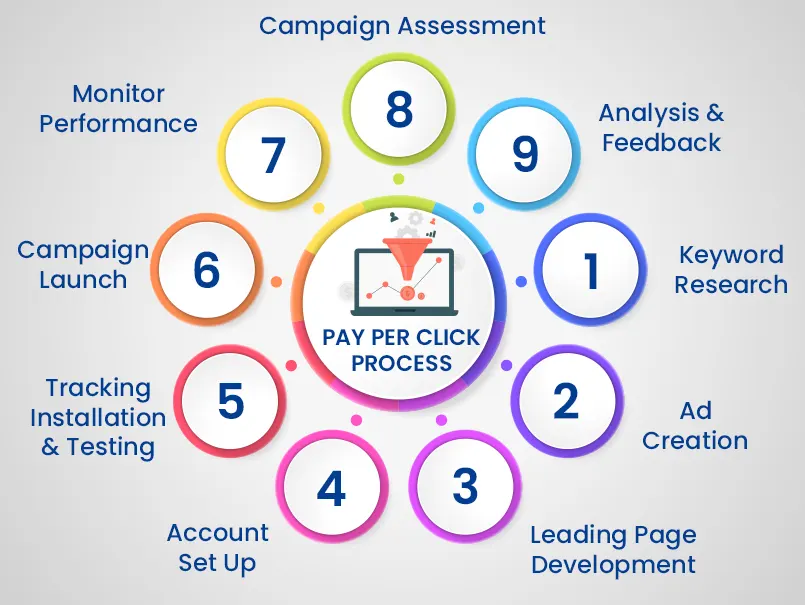
1. SEM :
Now, how does PPC advertising work? To be simple, The objective of all digital advertising is to rank for a target keyword, which can be achieved through Search Engine Marketing (SEM), encompassing both paid advertising and search engine optimization (SEO). SEM includes PPC campaigns, where advertisers pay for each click on their ad, and it's crucial to understand the following elements:
2. CPC (Cost-per-click) :
Cost-per-click
is the amount an advertiser pays for each click on their ad. It acts
as the bid in an auction determining ad placement. Setting a higher
CPC bid can lead to better ad placement.
Actual CPC of Pay
Per Click advertising price calculation:
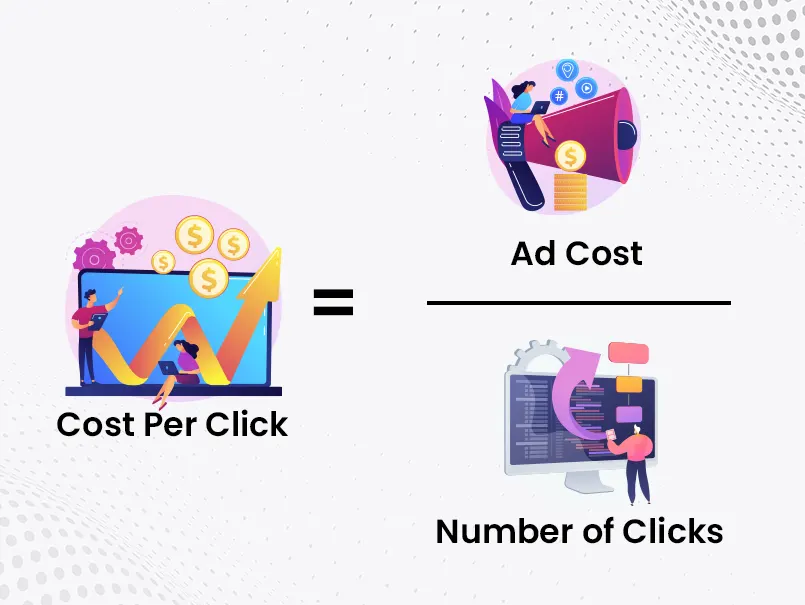
The actual CPC paid is determined by the
formula:
(Competitor's Ad Rank / Your Quality Score) + 0.01.
This formula considers the competitor's ad rank and your quality
score to determine the final CPC.
3. Ad Rank :
Ad Rank determines the position of an ad on a search engine results page and is calculated as Maximum Bid x Quality Score.
4. Quality Score :
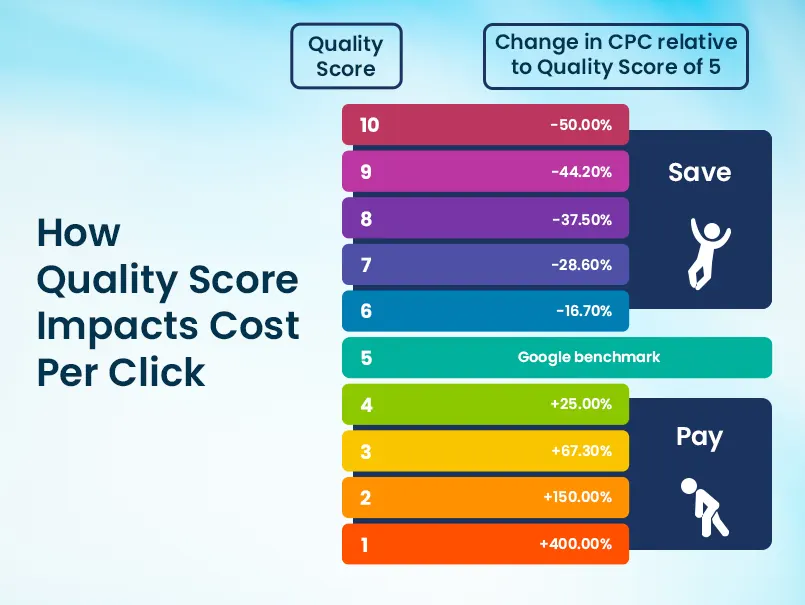
Quality Score is assigned by search engines to determine paid search advertising cost based on factors like clickthrough rate (CTR), keyword relevance, landing page quality, and past performance on the search engine results page (SERP).
5. CPC (Cost-per-click) vs. CPM (Cost per Mille) :
CPC of Pay Per Click advertising rates in India is the cost per click, while CPM is the cost per one thousand impressions. CPC is commonly used for search engine ads, while CPM is more prevalent in paid social and display advertising other than cost-per-engagement and CPA.
6. Maximum Bid :
Maximum Bid PPC Ad networks is the highest amount an advertiser is willing to pay per click on their ad.
7. Ad Group :
Each PPC advertising services campaign consists of multiple ad groups targeting specific sets of related keywords, allowing for more tailored ad messaging and bidding strategies.
8. Keywords :
Keyword research dictates when and where your ads appear in search results, influencing your ad's visibility and relevance to user queries.
9. Ad Text :
Craft ad copy that aligns closely with your chosen keywords to improve relevance and boost your Quality Score, ultimately leading to better ad performance.
10. Landing page :
A landing page is a vital component among the advantages of PPC advertising of your paid advertising strategy, serving as the destination for users who click on your PPC ads. Whether it's a dedicated webpage, your homepage, or another location, it's essential to follow best practices to boost conversions.
5 Steps
for a Successful PPC Campaign in 2024
You will need to craft a successful PPC campaign to yield high Pay-per-click advertising benefits . Follow these rundown steps to build an effective campaign that yields high results:
1. Set Clear Parameters :
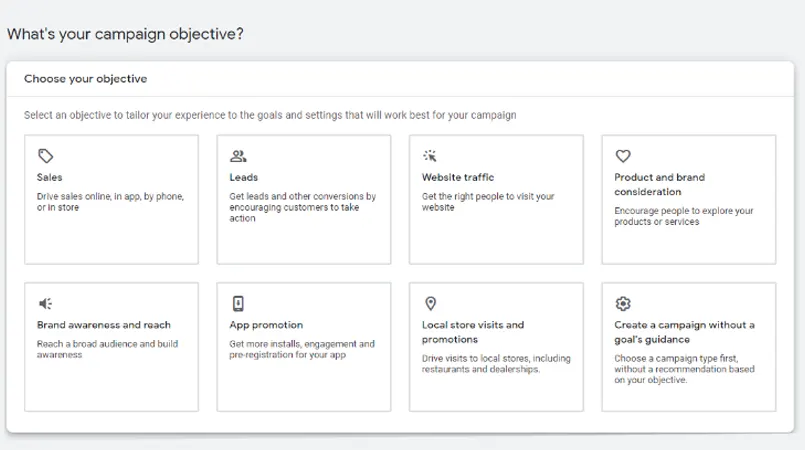
- Define your campaign objectives, target audience, and desired outcomes upfront.
- Determine the budget allocation and the platforms you'll utilize for your ads.
- Establish key parameters such as ad placement, campaign theme, and success measurement criteria.
2. Create Measurable Goals :
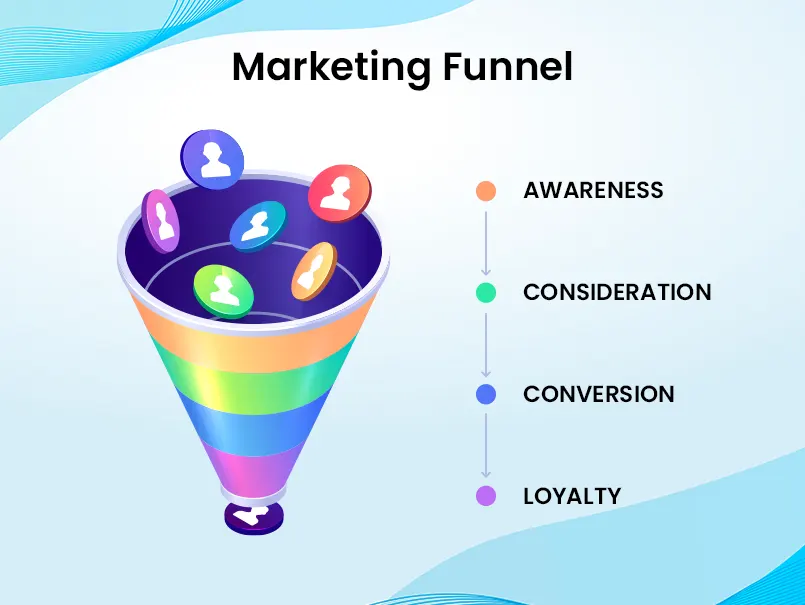
- Establish specific campaign goals aligned with paid search advertising cost with your business objectives.
- Define metrics for tracking the success of PPC for each goal, ensuring clarity and accountability.
- Common PPC goals include brand awareness, lead generation, offer promotions, sales, and website traffic.
3. Choose the Right Campaign Type :
- Select the appropriate campaign type based on your target audience and paid search advertising cost.
- Options include search ads, display ads, social media ads, remarketing, and Google Shopping.
- Consider utilizing a combination of campaign types for maximum reach and effectiveness.
4. Perform Keyword Research :
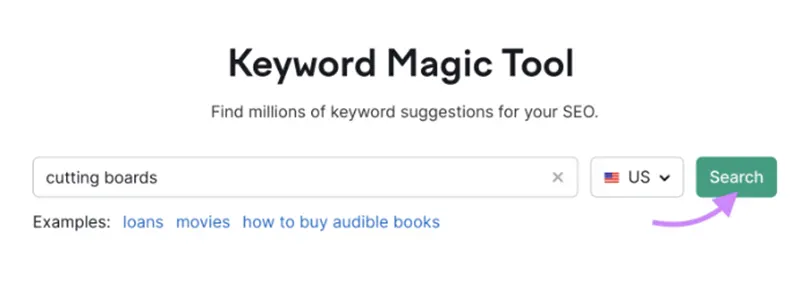
- Conduct thorough keyword research to identify relevant terms and phrases for targeting.
- Focus on selecting high-quality keywords aligned with each ad group's theme.
- Continuously monitor and refine your keyword list to optimize campaign performance over time.
5. Set Up Tracking and Analytics :
- Install Google Analytics to gain valuable insights into website performance and user behavior.
- Implement tracking mechanisms to monitor campaign effectiveness and ROI.
- Regularly analyze data to identify the trend, pay-per-click advertising price, and evaluate the overall performance.
Here comes an end to the strategy of Pay-per-click advertising explained in the simplest form. By following these steps in your next PPC campaigns, you can maximize and achieve your business objectives effectively in 2024.
6
Common PPC Mistakes to Avoid in 2024
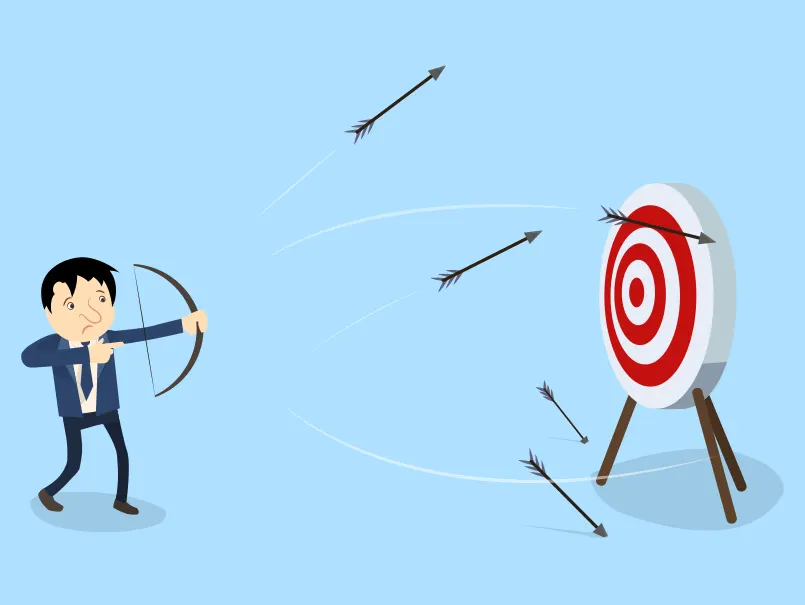
1. Undefined Goals:
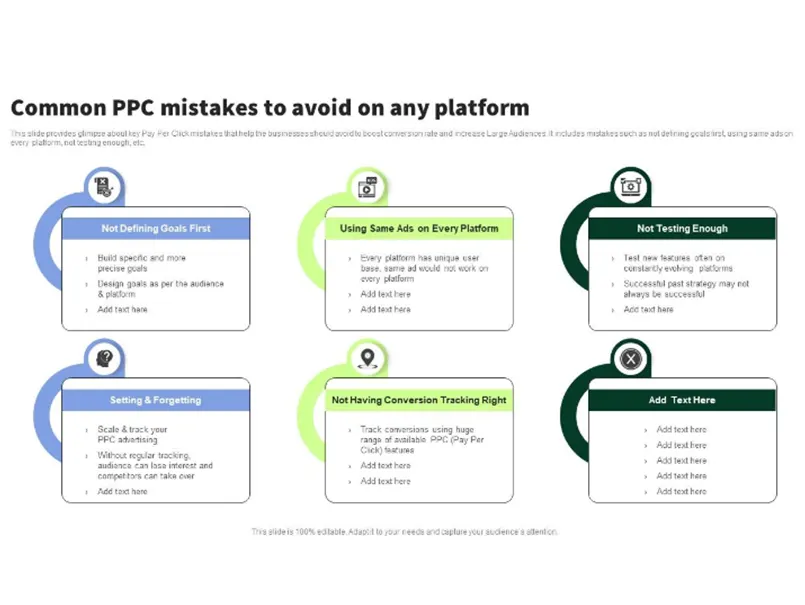
With clear objectives of PPC advertising services, measuring success becomes possible. Define specific KPIs to track progress effectively.
2. Neglecting Testing and Tracking :
Failure to monitor metrics and test variations leads to suboptimal performance. Regularly analyze data to identify trends and optimize campaigns accordingly.
3. Set-and-Forget Mentality :
Continuous monitoring and adjustments are crucial for campaign optimization. Stay proactive in optimizing ad copy, targeting, and budget allocation.
4. Overreaching :
Focusing on too many keywords leads to wasted ad spend and diminished performance. Prioritize high-converting keywords to maximize ROI.
5. Ignoring Exact Match Keywords :
Omitting exact match keywords reduces relevance and wastes ad spend. Utilize exact-match keywords to target highly relevant search queries.
6. Neglecting Negative Keywords :
Forgetting to use negative keywords results in ads being shown to irrelevant audiences. Exclude irrelevant search terms to improve ad targeting and efficiency.
Work
Together and Get Paid Conversions
The paid search advertising meaning sounds quite simple,
right?
But, not so as you see. First, you need to understand and then apply
the lessons in the best possible way to enjoy the advantages
of PPC advertising.
However, the good part is that you are not alone in this journey. We
are here to guide you in every step. Let’s take that step and get a free business
audit in minutes to know where you are lacking.
So, join hands with Cronbay
Technologies and transform your strategy, boost website
traffic, and maximize conversions with dedication!
Frequently Asked Questions
1. How does Quality Score influence ad position and CPC?
Ans. Quality Score influences ad position and CPC. Higher scores mean better positions and lower CPCs as search engines prioritize relevant and user-friendly ads.
2. Does the Google Page Rank of the landing page affect the Quality Score?
Ans. Google Page Rank doesn't impact Quality Score. Quality Score relies on ad relevance, expected click-through rate, and landing page experience, not on the landing page's authority or popularity in Google's search results.
3. Is PPC exclusive to large brands?
Ans. PPC isn't just for big brands; businesses of all sizes can benefit. Success hinges on relevant keywords and targeted ads. Effective targeting helps businesses achieve advertising goals through PPC.
4. What is the character limit for a PPC ad?
Ans. Standard ads allow up to 25 characters in the headline and 70 characters in the description. Expanded text ads offer 30 characters each in two headlines and 80 characters in the description.
Comments
Add new comment
See What's Trending in Digital Marketing World
Do you want to know what are the latest developments in the digital world? Catch the detailed insights with our latest blogs.

